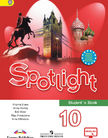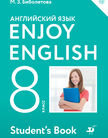One is never too old to learn.
I. Answer the following questions (brainstorming).
1. When did you finish school?
2. Did you like going to school? Did you have many friends?
3. Do you remember the name of your first teacher?
4. What were your favourite school subjects ?
5. Were the marks important for you? Did you try to do your best to get an excellent mark?
6. What did you like better: primary or secondary school?
7. Were you a well-behaved student or a trouble-maker? Did you miss lessons?
8. What did you usually do after school?
9. Do you keep in touch with your former teachers and classmates?
10. Do you want to continue your education after finishing college?
a) Use complete sentences to say what school subjects you were good at bad at interested in bored with keen on
Biology Art History Chemistry Literature Physics Computer Languages ( Russian, English) Geography Maths Sport
b) What subjects do you learn at college? (If any problems with the names of subjects consult a dictionary). What are your favorites? Why?
c) Tell your group mates about your school experience.
Eg. My school was great/ I didn’t like my school very much. The classmates were friendly/ unfriendly/…. The teachers were…….. My favourite subjects were/ I was good at/ I was bored with…. I tried to do my best to get ….. marks. I was a ….. student. After school I usually…… I keep in touch/ don’t keep in touch with…… I want to …..
III. Give definitions to the following notions using the guesses in the table.
A literate person School
Knowledge
A class
To teach
is
all that is or can be known.
a person who is able to read and write.
a group of persons learning together.
to give a person a knowledge or skill.
an institution for teaching and learning
IV. Read and translate the text about Russian education system.
Vocabulary:
mandatory/compulsory [kəmˈpʌlsərɪ] [ˈmændətərɪ] — обязательный;
skill [skɪl] — мастерство;
to depend [dɪˈpend] — зависить;
exception [ɪkˈsepſ(ə)n] — исключение;
free education- parents do not pay money; not paid
is represented by- представлено;
Education is an important part of modern life. According to the Constitution of the RF each citizen of the country has the right to education. Originally Russian education starts from the early age. Children can start going to the nursery or kindergarten from the age of two, but this is not a compulsory education. It depends on parents’ decision and child’s wish to attend these institutions.
In the Russian Federation the school education is universal, free and compulsory. The pupils and students begin their studies on the first of September. This date was officially recognized as the Day of Knowledge. Pupils start going to school at the age of seven and finish it at 17.
General education in Russia comprises three stages: primary education, which lasts for four years; basic general education lasting for five years and secondary education which lasts for two to three years.
Pupils start primary school at the age of 6-7. The primary school teaches its pupils elementary skills, such as reading, writing, counting. Many schools also offer foreign languages or some other special disciplines such as Nature Study, Computer, Music , Arts, Technology, Physical Training (PT) etc.
The most important period is basic general education (secondary school), which starts from the 5th grade. This is the time when children start learning Biology, Geography, Chemistry, Physics, Computing, Society, History, Geometry and many other new subjects. They usually have five or six lessons a day. The school year is divided into four quarters and after each the students have short vacations, and a three-month vacation in summer.
At the 9th grade children face a very important period in their life. They have to choose whether to continue school education, or to leave for other types of educational institutions, such as colleges, specialized ( vocational) schools and etc. Both vocational schools and colleges are meant to provide one with the certificate of secondary education or diploma, with a number of useful skills (electrician, technical, primary school teacher etc). Students have to pass some exams successfully to get a Certificate of Basic Secondary Education.
If a pupil decides to continue studying in high school, which lasts for two years, he can apply for the university after leaving school. At the end of the 11th grade all the students take the United State Exam on the Russian Language and Literature, Maths, Physics, History and Society, Foreign Languages. They get a Certificate of Secondary Education (Maturity Certificate). According to the results of the exams they can apply for universities, colleges, institutes and academies.
Of course, it’s only the general pattern of school education in Russia, but there can also be some exceptions nowadays. For example, there are lots of special schools with the intensive study of particular subjects, gymnasia and lyceums. Also, apart from state schools, there is a number of private schools, where education is not free.
At present the system of school education in our country faces many problems with highly-qualified teachers, course books, school programmes, modern equipment and financial support of the state.
V. Complete the chart of the system of Russian education.
| ii |
| Iii p r I m a r y s c h o o l ( 7-10 years old) |
| iv |
| v |
| Vi h I g h e r s c h o o l (17- ) |
VI. Find antonyms to the following expressions.
a) start-school-
b) continue school-
c) state school-
d) free education-
e) general education-
f) university education-
g) basic education-
VII. Make up collocations with the word “education”.
To get
Education free
VIII. Translate from Russian into English:
Всеобщее обязательное образование, бесплатное образование, право на образование, в соответствии с конституцией, каждый гражданин, День Знаний, учиться в начальной школе, образовательные заведения, закончить школу, продолжить школьное образование, аттестат о среднем образовании, сдать экзамен, сдавать экзамен, обществоведение, биология, география, химия, иностранные языки, геометрия, школьный предмет, поступить в университет, школы с углубленным изучением определенного предмета, гимназия, лицей, высококвалифицированный учитель, современное оборудование, финансовая поддержка государства.
Make up sentences with these expressions.
Eg. School education in Russia is free, compulsory and universal. In Russia there are schools with intensive study of particular subjects.
IX. Answer the following questions.
1. Is education in Russia compulsory?
2. What subjects are taught at secondary school?
3. When do the students have exams?
4. What problems do the students face at the 9th grade?
5.What is necessary to do to apply for a university?
6. How often do school children have vacations?
7. What are the problems of our education system?
X. Finish the following sentences.
1. ________ to the Constitution of RF each ________ has the _______ to eduction.
2. School education in RF is_______, ________ and_________.
3. The first of September was officially ______as the________ .
4. Children start _______ to school ____ the age ____ 6-7.
5. ________education in Russia ________ by three types of schools:______, secondary and______.
6.________ school teaches pupils ________ _______ such as reading, ________ , _______.
7. The _______ school is the most________ period in the life if students.
8. This is the time when children start learning Biology, _____, _____, Physics, Computing, ____ , History, ______and many other new______.
9. The school year is_______ into four ________ .
10. The students have to________ exams ________ to get a _______ ________ _________ Education.
11. At the end of the 11th grade all the students take the _______ ______ exam.
12. _______ to the results of the exam they can _______ _____ a university.
XI. Comment on the system of school education in Russia.
XI. Render the following text into Russian. Use the new language. Find similarities and differences between two education systems.


Японская школа.
В Японии учебный год начинается в апреле и продолжается до марта следующего года с летними, зимними весенними каникулами. Уроки ,продолжительностью в 50 мин. каждый, начинаются обычно в 8.30. Учащиеся средней школы обычно имеют шесть уроков в день. После уроков они посещают внеклассные мероприятия.
Обязательное начальное образование начинается с шести лет. До поступления в школу дети должны уметь читать и считать. В начальной школе (shougakkou) учащиеся изучают математику, японский, музыку, домашнее хозяйство и общественные науки.
В средней школе (chuugakkou) учащиеся продолжают изучать те же предметы и к ним добавляются несколько специальных, таких как английский или русский языки.
Последняя ступень японского школьного образования –старшая школа . Хотя она не является обязательной , почти каждый стремится закончить ее тк она дает право поступления в высшее учебное заведение – университет.









Оставьте свой комментарий
Авторизуйтесь, чтобы задавать вопросы.